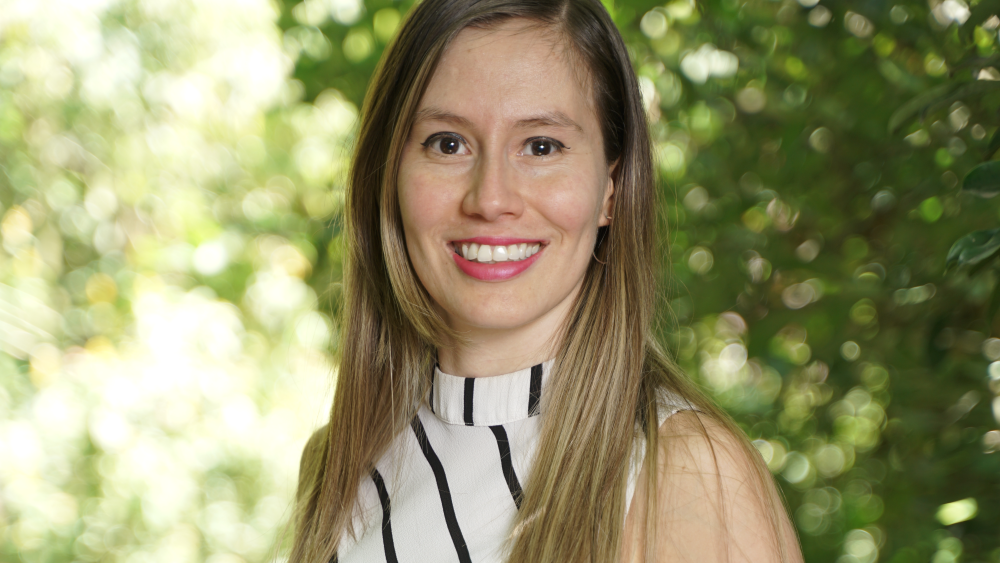Hi Esthefany! You graduated from the School of Economics and Management with a MSc in Entrepreneurship and Innovation in 2022, what have you been up to since your graduation?
One of my biggest fears when I decided to quit my job at a multinational and go study in Sweden, was to be unemployed for a long time. However, I worked hard not to make that a reality, and I was lucky to be hired at my dream job three weeks before graduation. At that time, the worldwide business incubator Bridge For Billions (originally from Spain) was looking for a Program Manager in Guatemala City to support them in running their new programs in the region (yes, it all got aligned). That is how I got hired as a Program Manager for LATAM for Bridge For Billions, where we support early-stage entrepreneurs in developing their business plans through a learn-by-doing methodology.
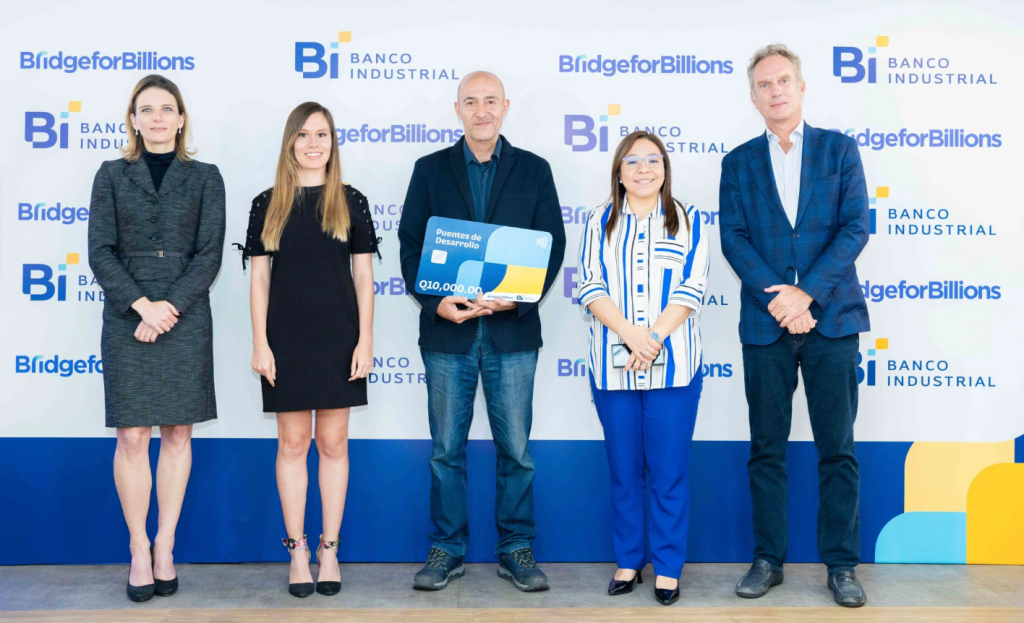
Around August 2022, I returned to my home country, Guatemala, to achieve the main goal that made me pursue my master’s in Lund, which was supporting and empowering entrepreneurs (especially women in Latin America) to overcome the so-called “Valley of Death curve” in entrepreneurship. The Valley of Death describes the period in the life of a startup in which it has begun operations but has not yet generated revenue. As a Program Manager, I had helped more than 150+ entrepreneurs by running programs in the whole Central America region for important banks to public and private companies, for example, Coca-Cola. All of this has definitely contributed to my life and professional goals, especially because I have had the chance to consolidate the entrepreneurial support for Central America.
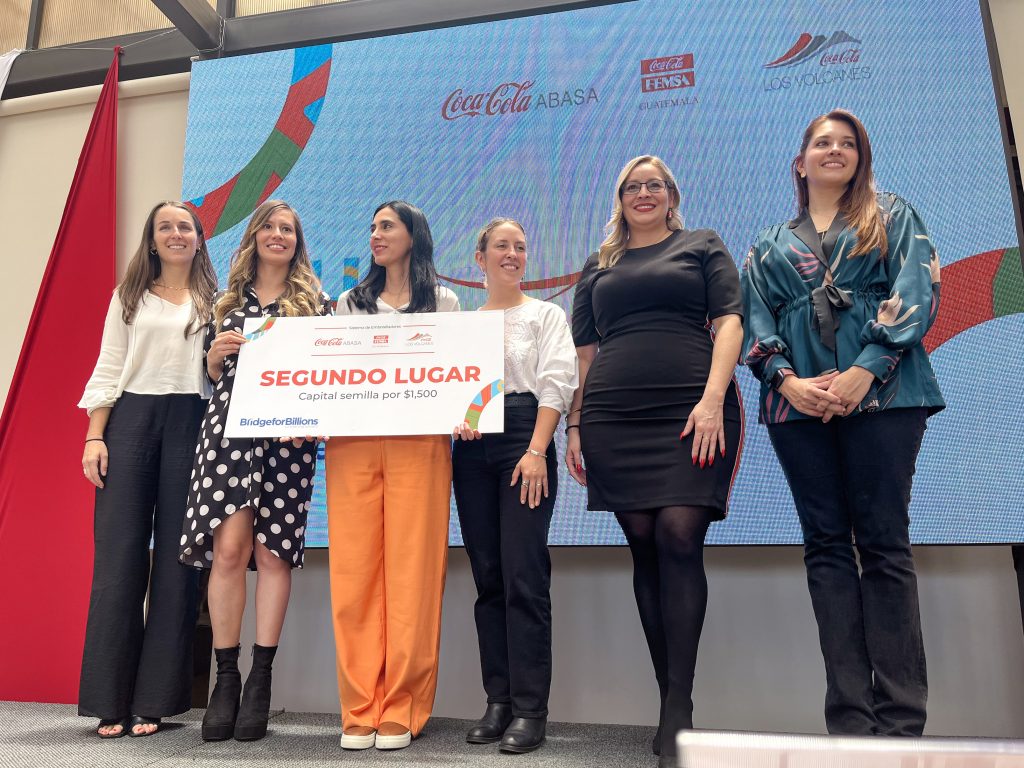
In addition to my role at Bridge, I also wanted to stay engaged within the academic field. That is how I got the chance to be a professor for the new bachelor’s called Sustainable Businesses and Innovation at the university I graduated from in Guatemala. It was an honor to help create the course content for this bachelor by bringing to this side of the world things I learned in Lund, and helped develop the entrepreneurial mindset here in Guatemala. Furthermore, I wanted to keep in touch with Lund and especially with my master’s colleagues; that is how, with Natalia and Gema, we started a podcast called “Generation Entrepreneurship,” which you can find on Spotify, where we interview high-performing entrepreneurs to learn from them. And that is how a whole year since my graduation has gone by.
What does your daily routine look like?
At Bridge for Billions, I design, create, and manage online entrepreneurship programs in different countries of Latin America. Usually, I manage between 3-4 programs at once in the same or different countries, which is why my time involves things such as meeting with clients to let them know how their entrepreneurial programs are going, scouting for entrepreneurs and mentors to enroll in our programs, meeting with entrepreneurs and mentors to discuss their work in our methodology, finding new alliances within the entrepreneurial ecosystem or even attending a pitch competition to celebrate cohort graduation. In summary, my daily work depends on the timeline and phase of each program, and that is why it is complex and involves a high capability to juggle between activities.
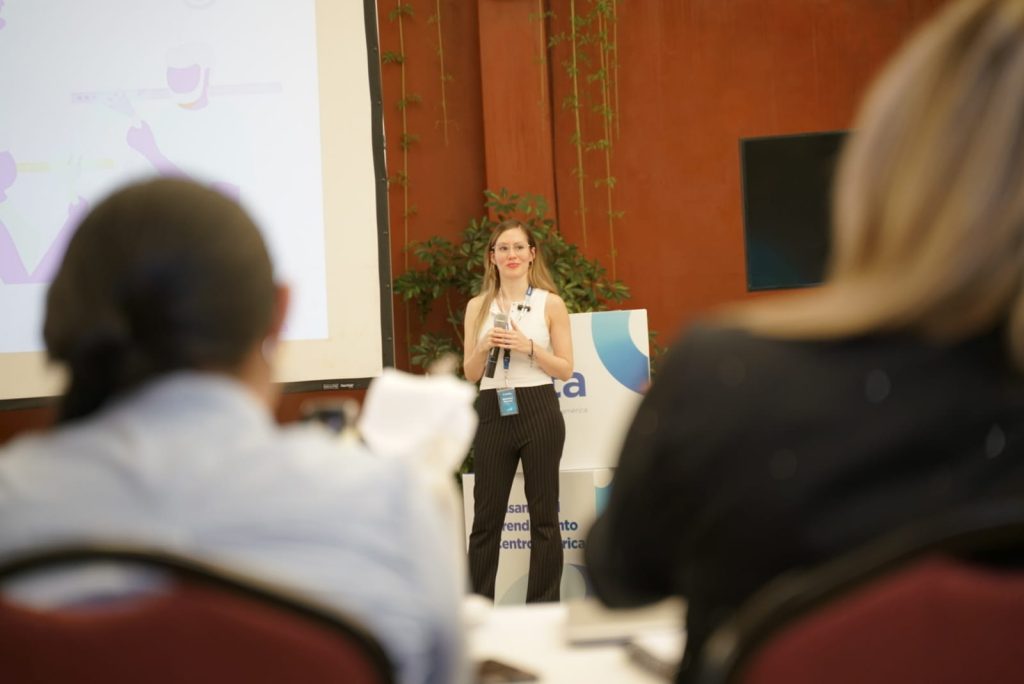
Aside from my work related to entrepreneurial programs, Bridge For Billions is a genuinely international startup with more than 50 people around the world, so I spend my time also doing online meetings with people from Europe or Africa, mixing between speaking Spanish and English. In addition, I got the chance to attend our new on-site office in Guatemala City, where I shared with eight colleagues from different departments like sales, Marketing, and customer support.
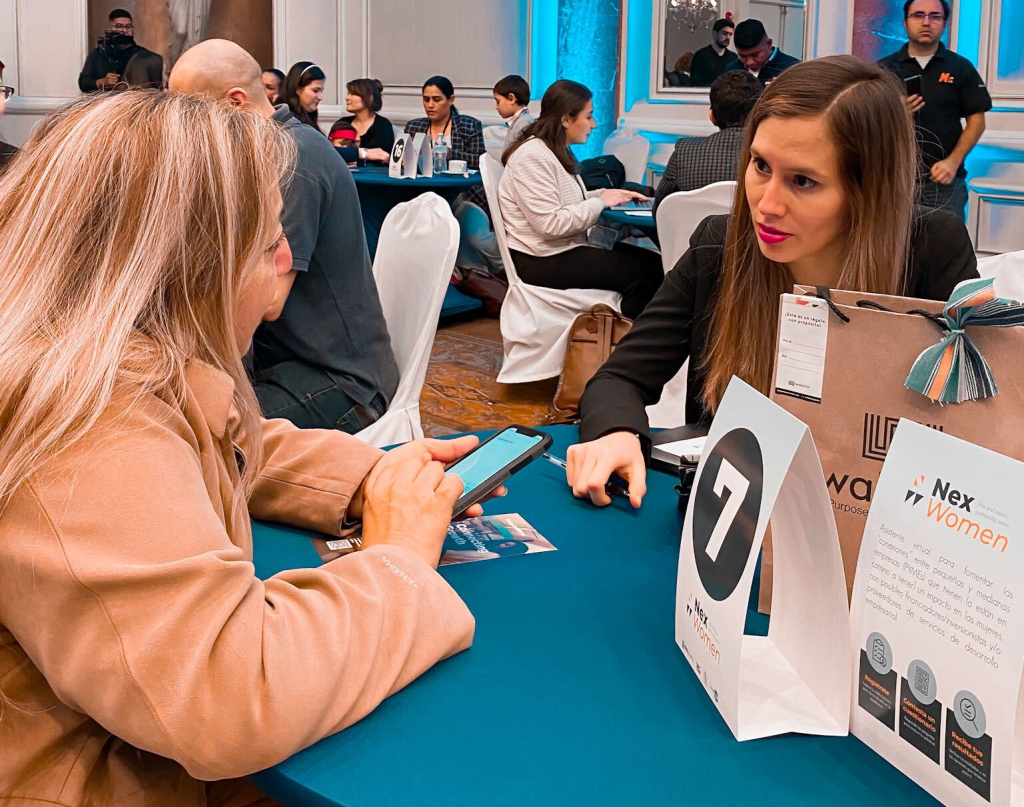
One thing I love about working in my current position is that sometimes it feels like it did when I was volunteering in entrepreneurship, but now I get paid for what I love to do. I can help people and nurture the entrepreneurial ecosystem in LATAM. I will always be grateful for doing what I do now; it is fulfilling.
You have experience from coaching and supporting entrepreneurs, what is the most common question you get and what is usually your response to that question?
I can’t think of a common question, but a common saying I usually get from entrepreneurs I support: “I decided to become an entrepreneur because I want to be the owner of my time and business.” Still, being an entrepreneur is more than this and certainly more complex. That is why, when I hear this, I always reply that by being an entrepreneur, they are enrolling into the incredible and fulfilling journey that will involve:
Perseverance: As is commonly known, entrepreneurs will fall and lose money, learn from their errors, and celebrate significant milestones. Something that I learned is that no one will work for your startup harder than you. It would be best if you work daily on your business idea to get it up and running. It will take time and hard work to get a business to run smoothly and be profitable.
To Be a Doer: To be an entrepreneur, first, you need to picture your business and act, not staying still for too long imagining and not acting upon it. To get your business up and running, you need to test, redefine, find your potential clients, do tests again, and readjust everything based on experimentation and field research. In addition, you need to be brave and have confidence during each step of the journey and not let others get you down.
Great networking: Another thing I found true while being an entrepreneur is that you need to be great at networking or even look for it. Go to events, talk to people and potential investors, but more importantly, find what others are looking for, and see how you can create new alliances that will make yourself (and your business) remembered. Don’t forget to enroll with organizations that offer vital support, such as incubators and accelerations. Always be aware to find new opportunities that will make you scale up.
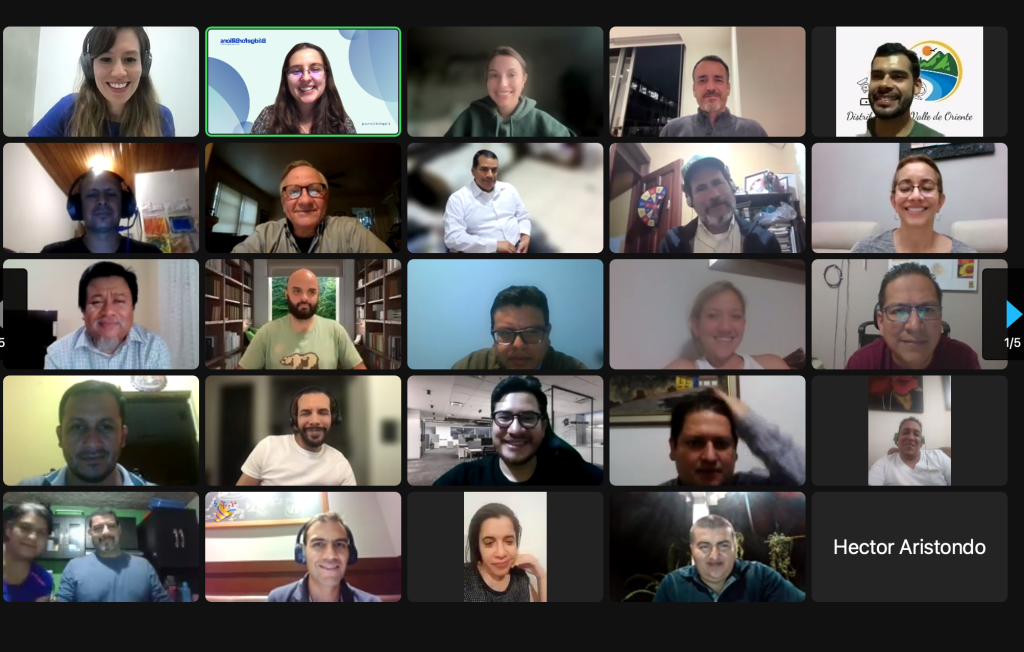
By saying all this, to be an entrepreneur involves starting and running a business by yourself but it also consists of creating a positive impact in the world by solving a problem or a necessity for society.
What are the takeaways from your studies at Lund University that you find most useful when working for Bridge For Billions?
My professional and personal life changed after my studies at Lund University. With the people that I met and the great experiences I had; I couldn’t choose anywhere else to study.
I can say that one of the aspects that helped me the most was that Lund is super international; in my master’s alone, we had more than 20 nationalities. This opened my mind to new ways of working, ways of communicating with others, and, for sure, new ways of innovation. While studying, I also got to talk with founders, co-funders, investors, and key actors in the entrepreneurial ecosystem. These experiences helped me to deal with different clients around the world, and I am sure it also helped me to get the position I have now in such an international start-up.
Furthermore, I’m sure that all the opportunities I found within the Swedish entrepreneurial ecosystem shaped the entrepreneur that I am today and the support I offer through my work. I remember that while studying at Lund, each week, I looked for events related to entrepreneurship in Malmö and Lund, and I always found one. I attended and got inspired by all of them. The entrepreneurs I met showed me how important it is to fight for what you want and that the entrepreneurial journey is challenging but fulfilling.
In addition, my master’s mentor, Rita Lousa, helped me to find the potential and confidence needed to come back to my home country and support entrepreneurs. I remember she always encouraged me to challenge myself and think outside the box; now, I am trying to do it for my bachelor’s students and the entrepreneurs who enroll in our programs. I could find a friend in my mentor and the support and empowerment any entrepreneur needs when developing a business.
Reskilling and upskilling have become an area crucial for being able to meet the changes of the future. What are the skills that you feel you would like to learn or develop in your working life?
I recently experienced a massive reskilling while studying at Lund University. Before pursuing my master’s in Entrepreneurship and Innovation, I was enrolled in the Human Resources field, and I worked for seven years in related positions. But I got passionate about entrepreneurship and improving entrepreneurial support in Latin America. That is how I chose Lund to study and prepare myself to do a different job after my graduation.
On the other hand, in terms of upskilling at this new phase of my professional life, I have identified two aspects that I plan to learn and develop in the upcoming years:
- Project management: each entrepreneurial program that I start and close needs all the steps that the project management methodology encourages to do. I want to master the fundamentals of the PM methodology to find new and efficient ways to run our programs.
- Digital Marketing and E-commerce: I want to learn more about how to create content for social media platforms, how to manage the most important social platforms, and how to do great advertisements. I plan to learn and practice these new skills to become a Digital marketer consultant for entrepreneurs and continue supporting them.
I’m sure these skills will help me to foster my impact and continue escalating in my professional life in my new entrepreneurial career.
What are your favorite places to visit in your current home country Guatemala?
When someone asks me about Guatemala, I always say that here you can find warm weather and a beautiful blue sky. We have a perfect mix of adventures, from tropical jungles to active volcanoes, lakes, and beaches.
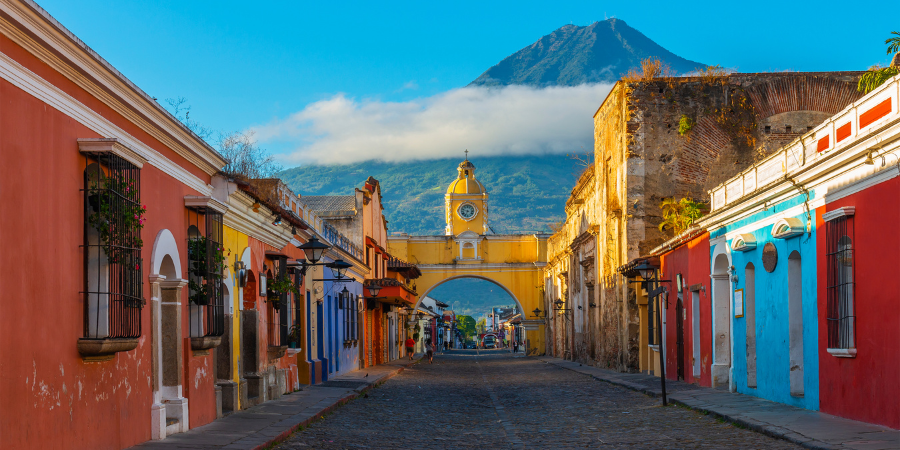
I am a lover of exploring my own country, so if you want to come for a visit, I can recommend these options that are my favorites:
Lake Atitlan: for me, it is one of the most magical places in Guatemala and, for foreigners, one of the most beautiful lakes in the world. This lake is ringed by three volcanos and small towns entirely different from each other, full of markets and local crafts. One of the most amazing things about this lake is that it sits in a volcanic crater 1,538 meters above sea level, and you can explore it by boat. It is around three hours’ drive from Guatemala City.
Mayan Ruins of Tikal: It is one of the most significant archeological sites in Central America, with well-preserved ruins located within the jungle of Peten, where you can learn more about the Mayan empire that lived there between 600 BC and 900 AC. You can walk around the park looking at high pyramids, temples, and plazas while you hear monkeys and birds. It is located in the northern part of Guatemala, and now you can travel from Guatemala City to Tikal by plane.
Antigua Guatemala: This was one of the capital cities of Guatemala before 1773 and has a lot of remnants from the Spanish colonization and culture. History says we left the place because of constant earthquakes that struck the city. Antigua is also a magical place surrounded by volcanos; it has cobblestone streets, old colonial buildings, convents, and churches. It is an excellent place to go during the weekends to eat at the many restaurants that Antigua has and is only around 1 hour from Guatemala City.

